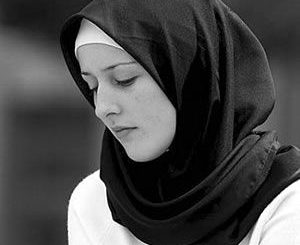American Muslim woman faces Islamic stereotypes
| MIT / Agencies |
| 6/1/2013 |

“Where are you from?”
This is a question I have received countless times. If I had a dime for every time I was asked this question, I’d be rich.
Ironically, when I answer, “From Ann Arbor,” the response is always, “No, I mean, where are you really from?”
I recently went to Iowa, where I had this encounter almost word for word. I’ve been calling it my Iowa story, but it could have happened anywhere, and it does happen everywhere.
We all have things that are essential to our character, things that make us who we are. But how would it feel if you were questioned about your identity on a regular basis? If everywhere you went, someone stopped you and asked you about yourself, your values and your beliefs?
This is the daily experience of American Muslim women. This is my experience.
I’ve grown accustomed to, and even welcome, random questioning from my fellow American citizens. I’ve answered every question under the moon about my hijab, from “Do you shower with that on?” to “Can you even hear me?” Just for the record, I can. Wearing a scarf does not hinder the ability to hear.
I welcome these questions because it is one way I can counter the stereotypes perpetuated on a daily basis about Muslims. But the question I can never get over that really offends me is “Where are you from?”
Why do people need validation that I am from here? Or rather, why is it that they assume I’m not?
What does it mean to be an American?
A Muslim is a follower of a religion, Islam, in the same way that a Christian is a follower of Christianity and Jews are followers of Judaism. Being Muslim does not make me foreign. And yet, there is this deep-seated belief that I, and other Muslims, must be “from somewhere” and not from here.
The assumption that I am “from” somewhere else is erroneous. In reality, I was the child who never moved — I live about three miles from where I was born. So when someone asks me where I am from, my answer is naturally that I am from Ann Arbor, Mich., USA. I will drive that point home before I respond with, “Oh, are you asking about my family’s ethnic background?” which is obviously a completely different question.
While the question is usually not hostile, the very premise behind asking it is wrong. What makes me, or anyone else, “from” here? It’s actually quite a deep question: the question of identity. Does the question refer to roots, family history, how you arrived at your present location or socioeconomic background? Does it refer to a hyphenated identity? If so, the hyphenated identity can really be applied to anyone — it’s not just where you’re “from,” but also, if you grew up in the inner city or the suburbs, if your parents were together or divorced, if you are wealthy or working three jobs to pay for school and so many more things.
The thing is, usually when me and other Muslim women are asked this question, it has not been thought out. It’s just a blatant, though often unintentional, assumption that I cannot possibly be from here because of my hijab and my unique name.
My request then is that you think deeply about your question before asking. Think about the judgment you’ve made. By all means, please ask. But ask in a less presumptive manner, because I’ll be sure to ask you right back, “Where are you from?” www.Muslimvilliage.com |
Number of View :2664














